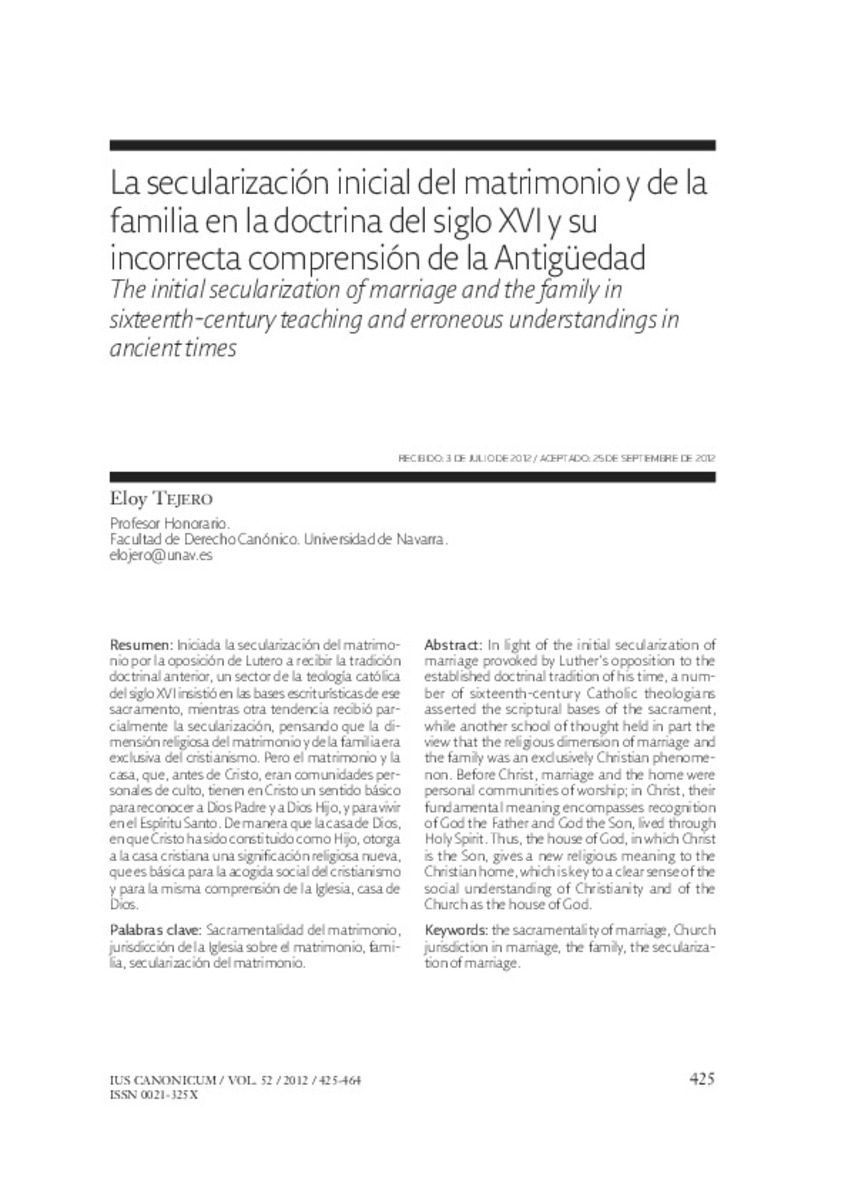La secularización inicial del matrimonio y de la familia en la doctrina del siglo XVI y su incorrecta comprensión de la Antigüedad
Other Titles:
The initial secularization of marriage and the family in sixteenth-century teaching and erroneous understandings in ancient times
Keywords:
Materias Investigacion::Derecho canónico
Sacramentalidad del matrimonio
Jurisdicción de la Iglesia sobre el matrimonio
Familia
Secularización del matrimonio
The sacramentality of marriage
Church jurisdiction in marriage
The family
The secularization of marriage
Publisher:
Servicio de Publicaciones de la Universidad de Navarra
Citation:
IUS CANONICUM, 2012, 52, N. 104, págs. 425-464.
Statistics and impact
0 citas en

0 citas en

Items in Dadun are protected by copyright, with all rights reserved, unless otherwise indicated.







